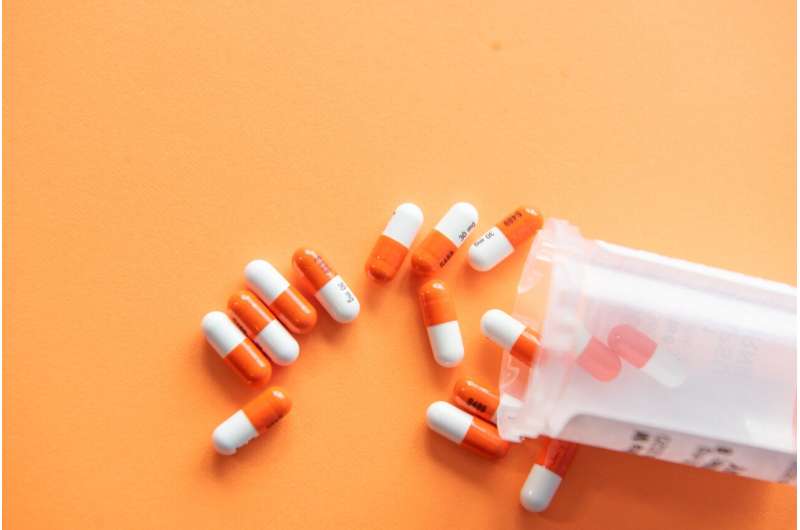This article has been reviewed according to Science X's editorial process and policies. Editors have highlighted the following attributes while ensuring the content's credibility:
fact-checked
peer-reviewed publication
trusted source
proofread
Exploring the environmental and monetary benefits of redispensing cancer pills

Redispensing cancer drugs reduces both environmental impact and medical costs, according to research from Radboudumc pharmacy published in JAMA Oncology. The annual savings could amount to tens of millions.
Cancer drugs as pills are not always used up by patients. The drugs are mostly expensive and environmentally damaging, both in production and (waste) disposal. In her Ph.D. research, Lisa-Marie Smale of Radboudumc investigated whether these unused drugs can be collected and reissued. Does such an approach ultimately lead to lower environmental impact and costs?
When redispensing medications, the quality must be guaranteed. Therefore, in this study the medications were packaged separately and fitted with a sensor, which registers whether returned medications were kept within the required temperature.
Smale says, "If packaging, temperature and expiration date are in order, the returned medications can be redispensed. For two years we investigated this procedure in cooperation with the pharmacies of four Dutch hospitals; Radboudumc, UMC Utrecht, Jeroen Bosch hospital and St Antonius hospital. Over a thousand patients who were taking oral cancer medications at home participated in the study during that period."
The results, published in JAMA Oncology, look promising. The investment in the method, such as packaging with a temperature sensor, amounts up to 37 euros per patient per year. This is offset by savings of 613 euros. Annually, this results in a net saving per patient of 576 euros.
Smale says "In the Netherlands, we can save between 20 and 50 million euros annually with this redispensing of medication. Meanwhile, we have further optimized the process, making a net saving of 655 euros per patient possible. In the Netherlands, we have relatively low drug prices. If you look at the U.S., where the price of new drugs is over 300 percent higher, in principle much more money can be saved there."
Of all wasted medicine packaging, two-thirds could be reissued. Project leader Charlotte Bekker of Radboudumc says, "Based on the results, the study will be expanded to 14 hospitals. Again, we are looking at cancer pills. Reissue is only allowed in the context of a scientific study because of European rules. We hope that the approach can eventually be used nationwide, as well as for other drugs."
"This approach is cost-effective for expensive drugs," Smale says, "but ultimately there are other factors you want to consider, such as sustainability or social impact. Think of the environmental impact you can reduce by not destroying drugs but redispensing them; this can also be beneficial for drugs that are in short supply."
The study is, to our knowledge, the first to examine drug redispensing with guaranteed quality. The topic is attracting strong interest, not only in the medical community but also beyond. Several parties are committed to make further expansion possible.
In addition to the participating hospitals, the Dutch Association of Hospital Pharmacists (NVZA) is also closely involved. And it is part of the Green Deal objectives to make health care more sustainable. Smale says, "We are happy to work with all parties to address and reduce the cost and environmental impact of wasted medicines."
More information: Elisabeth M. Smale et al, Cost Savings and Waste Reduction Through Redispensing Unused Oral Anticancer Drugs, JAMA Oncology (2023). DOI: 10.1001/jamaoncol.2023.4865





















